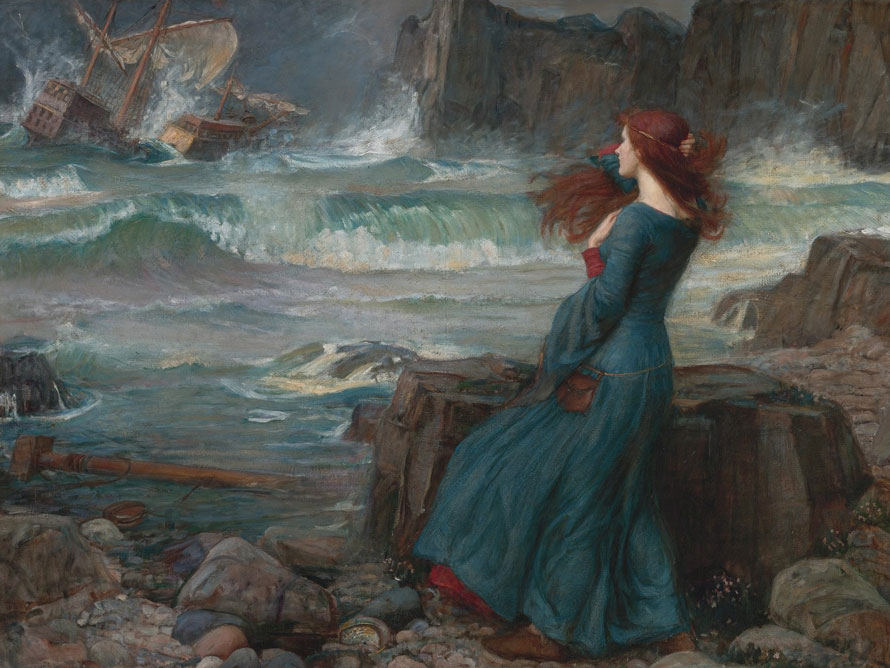The Tempest is one of Shakespeare's final plays before he retired to Stratford. Between a shipwreck, an exiled duke, and the mischievous spirits roaming a remote island, it has all the hallmarks of a Shakespearean classic. But it is more than that — in many ways, it is a meditation on theatre itself. The magician Prospero manipulates the events on the island like Shakespeare manipulates the action on stage. And, in the final scene, he renouncesFormally give something up. his magic and delivers a moving speech which many read as Shakespeare's own final farewell: "Now my charms are all o'erthrown And what strength I have's mine own."
The Tempest

Glossary
Renounces - Formally give something up.
Unsullied - Not spoiled.
Commodification - Turn something into a product to sell.
Statute - A written law.
Allegory - A story or poem that has a hidden moral or political meaning.
Trope - A recurring theme, especially in fiction. Damsels in distress, for instance, are a common trope in fairy tales and old-fashioned romances.
Benevolent - Well-meaning and kind.

